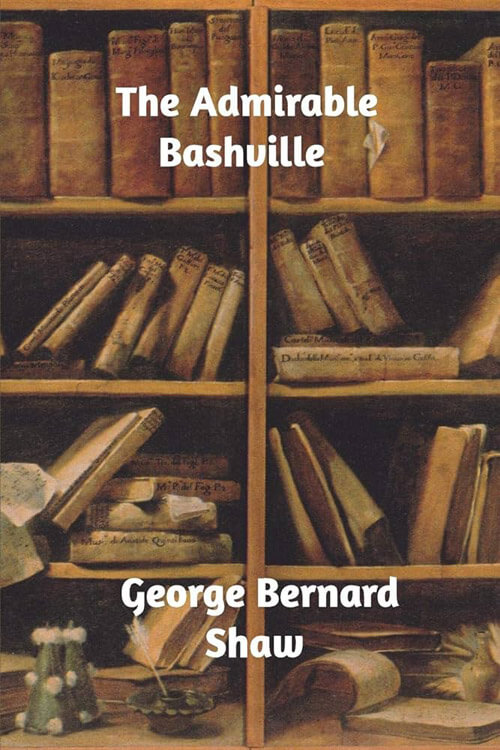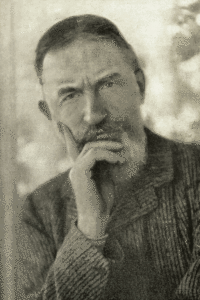
The Admirable Bashville or, Constancy Unrewarded
There is only one way in which the author can protect himself: by making a version of his own and going through the same legal farce with it. But the legal farce involves the hire of a hall and the payment of a fee of two guineas to the King’s Reader of Plays. When I wrote Cashel Byron’s Profession I had no guineas to spare, a common disability of young authors. What is equally common, I did not know the law. A reasonable man may guess a reasonable law, but no man can guess a foolish anomaly. Fortunately, by the time my book so suddenly revived in America, I was aware of the danger, and in a position to protect myself by writing and performing The Admirable Bashville. The prudence of doing so was soon demonstrated; for rumors soon reached me of several American stage versions; and one of these has been played in New York, with the boxing scenes under the management (so it is stated) of the eminent pugilist Mr. James J. Corbett. The New York press, in a somewhat derisive vein, conveyed the impression that in this version Cashel Byron sought to interest the public rather as the last of the noble race of the Byrons of Dorsetshire than as his unromantic self; but in justice to a play which I never read, and an actor whom I never saw, and who honorably offered to treat me as if I had legal rights in the matter, I must not accept the newspaper evidence as conclusive.
As I write these words, I am promised by the King in his speech to Parliament a new Copyright Bill. I believe it embodies, in our British fashion, the recommendations of the book publishers as to the concerns of the authors, and the notions of the musical publishers as to the concerns of the playwrights. As an author and playwright, I am duly obliged to the Commission for saving me the trouble of speaking for myself, and to the witnesses for speaking for me. But unless Parliament takes the opportunity of giving the authors of all printed works of fiction, whether dramatic or narrative, both playwright and copyright (as in America), such to be independent of any insertions or omissions of formulas about “all rights reserved” or the like, I am afraid the new Copyright Bill will leave me with exactly the opinion both of the copyright law and the wisdom of Parliament I at present entertain. As a good Socialist, I do not at all object to the limitation of my right of property in my works to a comparatively brief period, followed by complete Communism: in fact, I cannot see why the same salutary limitation should not be applied to all property rights whatsoever; but a system which enables any alert…
Read or download Book
George Bernard Shaw
George Bernard Shaw (26 July 1856 – 2 November 1950), known at his insistence as Bernard Shaw, was an Irish playwright, critic, polemicist and political activist.
Biography.
His influence on Western theatre, culture, and politics extended from the 1880s to his death and beyond. He wrote more than sixty plays, including major works such as Man and Superman (1902), Pygmalion (1913) and Saint Joan (1923). With a range incorporating both contemporary satire and historical allegory, Shaw became the leading dramatist of his generation, and in 1925 was awarded the Nobel Prize in Literature.
Born in Dublin, Shaw moved to London in 1876, where he struggled to establish himself as a writer and novelist, and embarked on a rigorous process of self-education. By the mid-1880s he had become a respected theatre and music critic. Following a political awakening, he joined the gradualist Fabian Society and became its most prominent pamphlete. Shaw had been writing plays for years before his first public success, Arms and the Man in 1894. Influenced by Henrik Ibsen, he sought to introduce a new realism into English-language drama, using his plays as vehicles to disseminate his political, social, and religious ideas. By the early twentieth century, his reputation as a dramatist was secured with a series of critical and popular successes that included Major Barbara, The Doctor’s Dilemma, and Caesar and Cleopatra.
Shaw’s expressed views were often contentious; he promoted eugenics and alphabet reform and opposed vaccination and organized religion. He courted unpopularity by denouncing both sides in the First World War as equally culpable, and although not a republican, castigated British policy on Ireland in the postwar period. These stances had no lasting effect on his standing or productivity as a dramatist; the inter-war years saw a series of often ambitious plays, which achieved varying degrees of popular success. In 1938 he provided the screenplay for a filmed version of Pygmalion for which he received an Academy Award. His appetite for politics and controversy remained undiminished; by the late 1920s, he had largely renounced Fabian Society gradualism, and often wrote and spoke favorably of dictatorships of the right and left—he expressed admiration for both Mussolini and Stalin. In the final decade of his life, he made fewer public statements but continued to write prolifically until shortly before his death, aged ninety-four, having refused all-state honors, including the Order of Merit in 1946.
Since Shaw’s death scholarly and critical opinion about his works has varied, but he has regularly been rated among British dramatists as second only to Shakespeare; analysts recognize his extensive influence on generations of English-language playwrights. The word Shavian has entered the language as encapsulating Shaw’s ideas and his means of expressing them.






